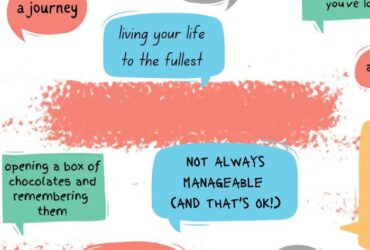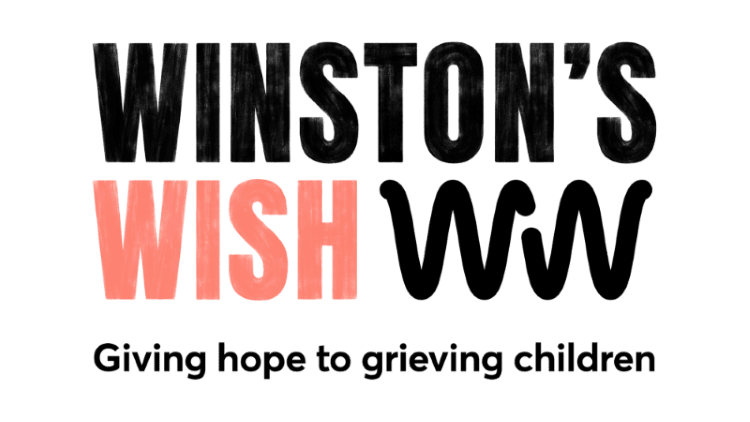This article has been written by freelance writer Sophie Bishop. Sophie aims to spread awareness through her writing around issues to do with healthcare, grief and wellbeing. www.sophiebishop.co.uk.
In a survey carried out by YouGov, it was found that around 18 million people across the UK were uncomfortable talking about bereavement. This isn’t a surprise – loss is a difficult topic and one that can bring up a lot of painful emotions for everyone involved. But, when a young person around you is struggling, it’s important you’re able to talk about and support them through their grief, making the experience a little easier.
With that in mind, we’ve put together an easy-to-understand guide full of tips that’ll help you help others.
How grief can affect behaviour
Whether you’re a parent or carer, professional, or friend, if you’re supporting a young person who’s recently lost a loved one, you first need to be empathetic to their grief. Everyone grieves differently and it can be difficult to fully understand someone else’s grief, but providing an open ear and a shoulder to cry on is always important.
Bereavement can be a difficult experience, but when you’re young it can be harder to understand and/or control the emotions you’re feeling. This can lead to outbursts of anger or frustration, as well as mood swings and mood disorders. It’s important to understand that negative behaviour can be a result of the sadness and loss they feel and acting out is an attempt to deal with these emotions, not because they want to be difficult.
Grief symptoms may return occasionally even after long periods. This will often happen around certain times of the year, such as the anniversary of the event or the person’s birthday. But for about 7-10% of people, painful emotions and sadness persist for over a year after the loss. This is “complicated grief.”
You might see the young person revert back to childlike behaviour, too, as a coping mechanism. In other cases, they may try to take on the role of an adult, bottling up their emotions and attempting to take control instead.
Dealing with harmful behaviour
It’s crucial to note that grief may lead to harmful behaviour. If the young person is showing signs of self-harm, suicidal thoughts, or other concerning actions (like starting to drink alcohol, acting differently or taking drugs) it’s vital that professional help is on hand.
Speak to your doctor if you notice the young person is physically harming themselves or expressing suicidal behaviour. For drug or alcohol abuse, it may be wise to consider professional help that can help tackle their potential addiction while working through their grief. Not everyone will require professional help but it’s vital to keep it as an option.
If you see that the young person is acting out or behaving in a way that’s harmful to themselves, don’t ignore it because they’re grieving. Instead, talk to them. Let them know you’ve witnessed their behaviour and that it is not healthy.
Don’t shout or tell them off, but make it clear you won’t let them behave in a way that’s harmful to themselves and that you love and/or care for them too much for that to happen. Make it clear that you’re acting out of compassion and care rather than anger for a constructive conversation.
- Don’t judge
- Don’t shout
- Don’t push too hard
- Make sure you speak with love
- Listen to what they have to say
- Remain understanding
It’s also important that the young person has someone they can talk to. If you’re a parent/carer or friend, make them aware they can talk to you but that they don’t have to. Young people sometimes prefer to speak with someone who isn’t in their close family or friendship and reassure them that this is okay, as long as it’s someone they trust. Remember, too, that you can always direct them towards our support helpline for professional resources and bereavement support.
Understand that grief doesn’t end
When supporting a grieving young person, it’s important to understand that you’re not working towards getting rid of the grief. Instead, you’re helping them to live with it.
Think of grief like a big circle representing the amount of importance it holds in the young person’s life. At the moment, any other circles, like social life or interests, are going to be relatively small in comparison, meaning that they won’t seem as much of a priority or as important. Some young people may seek support from activities in their lives that they enjoy, and may find them helpful.
As the young person works through their loss, the size of the grief circle is never going to disappear and might even remain the same size, but those other circles are going to grow around it. This is the process of them learning to live with the grief.
As someone trying to support them, instead of focusing on removing their grief, focus instead on:
- Acknowledging the loss and pain with them
- Validating their emotions
- Providing an empathetic ear they can talk to
- Showing love and support so they know they’re not alone
- Bringing comfort to their day-to-day lives
- Taking control of tasks that are too difficult to deal with
- Being there

Make time to talk and listen
Learning how to listen to someone who is grieving is going to make you better equipped to provide support. Some tips for being a good listener include:
- Be patient (don’t talk through pauses or finish their sentences)
- Look at them when they’re talking even if they don’t look at you
- Don’t interrupt
- Get rid of distractions (e.g. put down your phone and turn off the TV)
- Empathise, validate, and support
Make time to talk, too. If a young person is grieving, don’t put a timer on the conversation or rush off when they’re finished. Prioritise them in that moment and know that washing the dishes or walking the dog can wait.
Be there to help
Being there to help can make the young person who’s grieving feel cared for and supported while they’re struggling. It won’t take the grief away but it may make them feel less alone.
As a parent, if there are tasks you can do to make their day easier, like putting their clothes away for them or making them lunch for school, do them. Take on or help them with tasks related to the bereavement, too, such as informing the school or friends of their loss.
As a professional or friend, any help you can give, which can be as simple as making them a cup of tea, bringing them their favourite snack, or finding their jumper so they don’t have to get up, will show that you care.
To summarise
Grief is something no one can fix. But, by being present for a bereaved loved one and knowing how to help with their emotions, you can make sure they’re supported at a time when they need it.

How to get grief support
If you’re a young person who is struggling with their grief or you are an adult who would like help to support a child or young person after the death of someone, Winston’s Wish are available to help. Winston’s Wish provides support for children, young people up to the age of 25 and adults supporting them.
You can call the Freephone Helpline on 08088 020 021 (8am-8pm, Monday to Friday), email ask@winstonswish.org or use live chat (open 3-8pm, Monday to Friday). Winston’s Wish support workers are available to listen, can offer immediate guidance and resources and tell you what support they can offer and what might be most suitable for you.
The Winston’s Wish Crisis Messenger is available 24/7 for urgent support in a crisis. Text WW to 85258.

You might also like

Talk Grief is our new dedicated online space for grieving teenagers and young adults. They can talk to bereavement professionals, hear from other young grieving people, and share how they grieve: the good, the bad and the ugly.

What is grief? Young people share what grief is to them
Grief is different for everyone but experiencing grief for the first time as a child or young person can present even more challenges than experiencing grief as an adult. So we asked young people with experience of grief, what it means to them.


